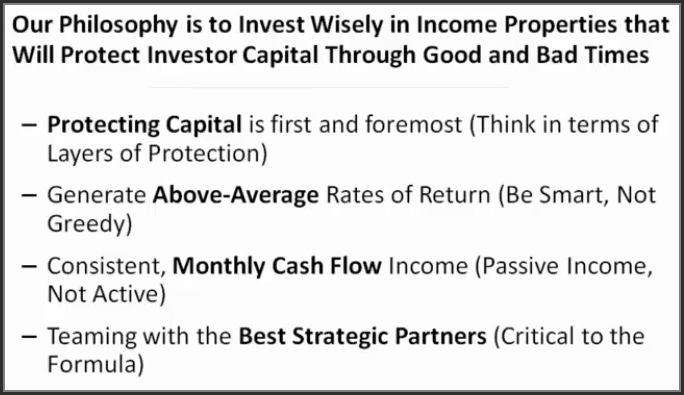 It seems like there are as many predictions about the recovery of the real estate market as there are stars in the sky. A quick Google search will lead you to opinion after opinion, tackling the issue from all angles. In fact, you’ll find glowingly optimistic predictions in one article and doom saying in another. For real estate investors, how do know who to trust when the same data is being interpreted in vastly different ways?
It seems like there are as many predictions about the recovery of the real estate market as there are stars in the sky. A quick Google search will lead you to opinion after opinion, tackling the issue from all angles. In fact, you’ll find glowingly optimistic predictions in one article and doom saying in another. For real estate investors, how do know who to trust when the same data is being interpreted in vastly different ways?
What if you choose to put your future in an opinion that turns out to be wrong? There’s a lot of risk there.
The best thing real estate investors can do is not put their entire trust in a single opinion or viewpoint predicting the future of the real estate market. Instead, look at the data that exists and expose yourself to many different viewpoints. Knowledge is the best preparation going forward in the future, no matter what happens.
At the same time, when it comes to real estate investing, investors should remember that real estate is hyper-local. National headlines really mean nothing when it comes to the local real estate market. We of course focus on the Memphis real estate market as well as the Dallas real estate and Houston real estate markets. These markets are not going to be effected by articles focusing on the national real estate market and headlines.
It is more important when we look at the real estate market, that consider what factors are playing a major role moving forward.
What’s Holding the Real Estate Market Back?
Lack of New Home Building and Consumer Mistrust
Supply and demand are struggling overall. While in some local markets, such as Dallas and Houston, home building is on the rise and outpacing other, larger markets, it’s still been sluggish. Without supply to meet demand where demand is growing, nothing can really move. In addition, some of these place have prices on new homes that will knock most home buyers off their feet.
In other places, homeowners are still reluctant to buy when they would have in another economy. Whether or not they escaped foreclosure during the burst of the housing bubble doesn’t really matter — for whatever reason, current homeowners are sticking it out in their current homes and more renters are continuing to rent.
The Job Market
 While the job market has seen improvement, there’s still a massive problem in stagnant wage growth. Unemployment and underemployment are both high — particularly for college graduates just entering the market.
While the job market has seen improvement, there’s still a massive problem in stagnant wage growth. Unemployment and underemployment are both high — particularly for college graduates just entering the market.
In the past, a college degree was a guarantee not only of a job, but a career. In 2014, that just isn’t the case. Millennials are struggling along with plenty of others who can’t find a job that pays a living wage, if they can get a job at all. The lack of capital means that fewer people have the power to be approved for a mortgage and buy as they otherwise would have. Even with low interest rates, affordable credit is hard to come by.
These few factors barely scratch the surface of all that affects they have on the housing market. The sheer numbers make it difficult to make accurate predictions, all of which have to be taken with a grain of salt.
So is the real estate market still in danger? Time will tell. We feel extremely comfortable in the the markets that we are operating in as well as the markets that we are researching for future growth. Memphis continues to remain strong although the jobs continue to be stubbornly grounded in lower wage categories. Dallas and Houston have very strong job markets and those job markets are really driving the housing markets. We like Nashville and San Antonio and will continue to monitor the job markets in those areas to see what effects they have have on the housing markets.
The only thing we know for sure is that there are plenty of challenges left to overcome in many markets if the recovery is to continue. What do you think is the key factor in the recovery of the housing market? Share with us in the comments.












